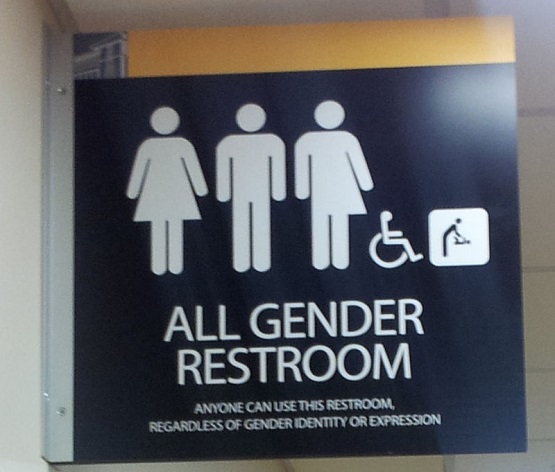
March 1, 2016; KELO-TV (Sioux Falls, SD)
NPQ recently reported on advocacy efforts in states across the US to stop legislation targeting transgender individuals, especially in educational settings. On March 1st, South Dakota Governor Dennis Daugaard vetoed HB 1008, a bill that would have required students to use the bathroom associated with their biological gender rather than their chosen gender identity.
Transgender rights advocates may rejoice in the outcome, but not necessarily in the logic behind the veto. In his veto statement, Daugaard said he vetoed the bill because it “does not address any pressing issue concerning the school districts of South Dakota,” that a state-level approach denied school districts the freedom to develop local approaches, and that the passing the bill was certain to plunge the state and its schools into lawsuits. Despite promises of support from outside groups to pay legal fees associated with defending the legislation, Daugaard said, there were no guarantees of funding included in the bill. In addition, he said, litigation would likely involve parties and expenses not covered by the promised legal support.
Sign up for our free newsletters
Subscribe to NPQ's newsletters to have our top stories delivered directly to your inbox.
By signing up, you agree to our privacy policy and terms of use, and to receive messages from NPQ and our partners.
Although the bill passed both houses with support sufficient to override Daugaard’s veto, it’s unclear whether the bill’s supporters and the legislative leadership will entertain such action on the one day later this month set aside for the consideration of vetoes.
South Dakota’s addressing the transgender issue was considered significant by both sides in the debate. The state’s overwhelmingly Republican political structure, which includes a GOP governor, GOP supermajorities in both houses of the state legislature, and a 100 percent GOP Congressional delegation, could be expected to be fertile ground for planting a bill like HB 1008. The bill’s defeat is a positive sign for transgender advocates, and Daugaard’s veto message shows other GOP governors a way to shut down discrimination on pragmatic terms that are less likely to alienate elements of their political base.
The ACLU has a webpage that lists the 12 states with anti-transgender legislation pending.—Michael Wyland











